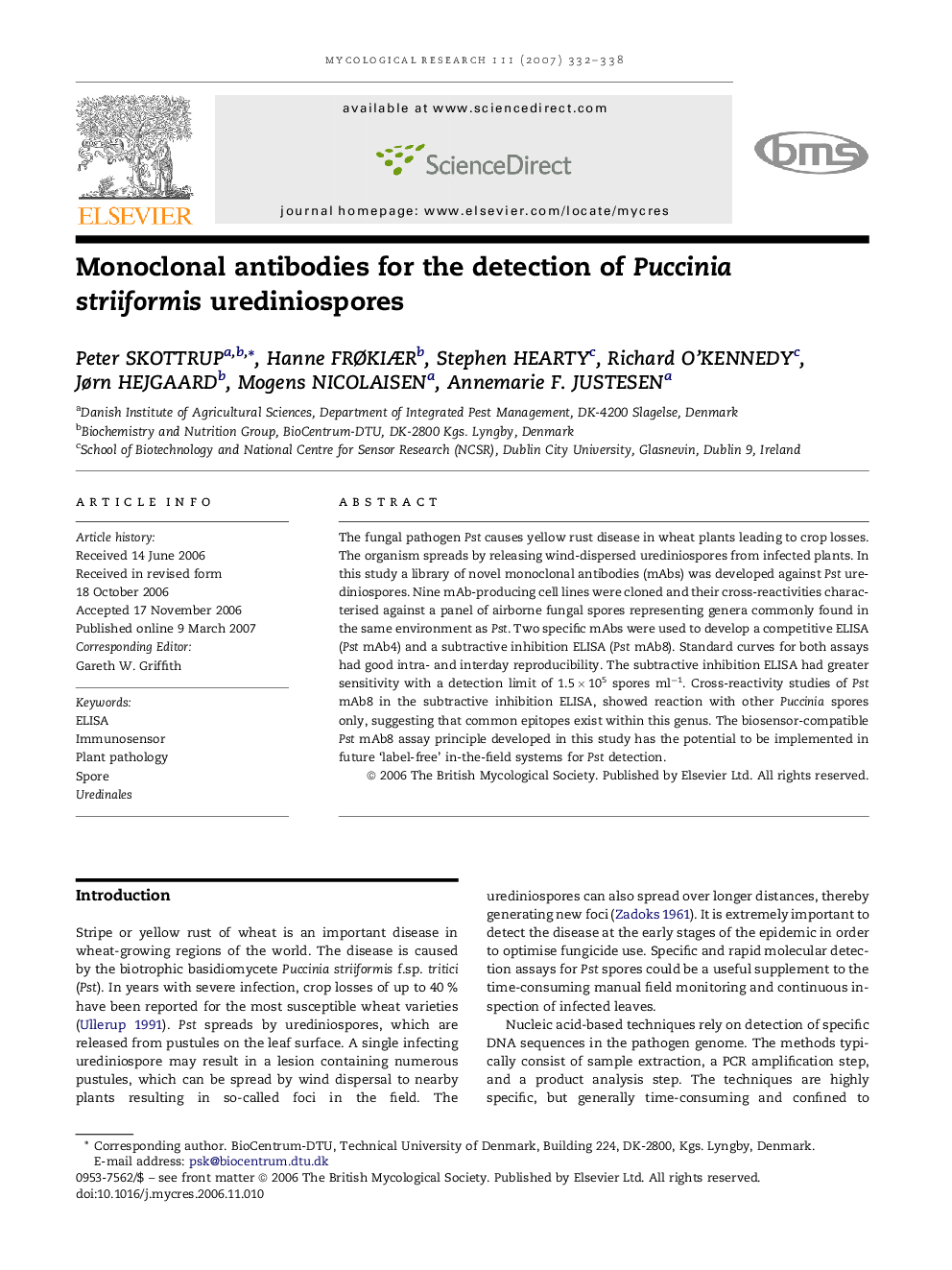| Article ID | Journal | Published Year | Pages | File Type |
|---|---|---|---|---|
| 4357999 | Mycological Research | 2007 | 7 Pages |
Abstract
The fungal pathogen Pst causes yellow rust disease in wheat plants leading to crop losses. The organism spreads by releasing wind-dispersed urediniospores from infected plants. In this study a library of novel monoclonal antibodies (mAbs) was developed against Pst urediniospores. Nine mAb-producing cell lines were cloned and their cross-reactivities characterised against a panel of airborne fungal spores representing genera commonly found in the same environment as Pst. Two specific mAbs were used to develop a competitive ELISA (Pst mAb4) and a subtractive inhibition ELISA (Pst mAb8). Standard curves for both assays had good intra- and interday reproducibility. The subtractive inhibition ELISA had greater sensitivity with a detection limit of 1.5Â ÃÂ 105 spores mlâ1. Cross-reactivity studies of Pst mAb8 in the subtractive inhibition ELISA, showed reaction with other Puccinia spores only, suggesting that common epitopes exist within this genus. The biosensor-compatible Pst mAb8 assay principle developed in this study has the potential to be implemented in future 'label-free' in-the-field systems for Pst detection.
Related Topics
Life Sciences
Agricultural and Biological Sciences
Agricultural and Biological Sciences (General)
Authors
Peter Skottrup, Hanne Frøkiær, Stephen Hearty, Richard O'Kennedy, Jørn Hejgaard, Mogens Nicolaisen, Annemarie F. Justesen,
